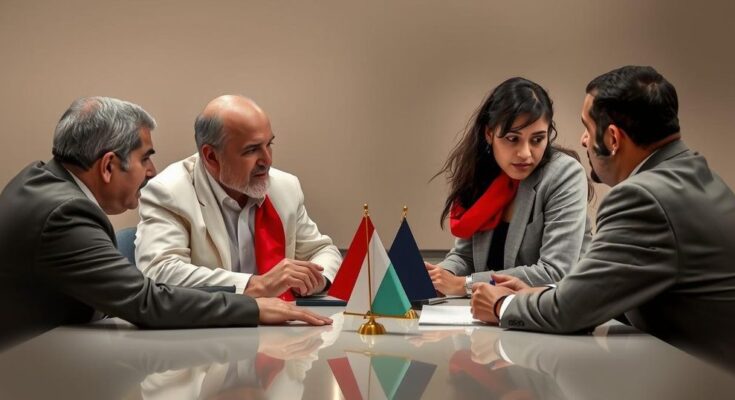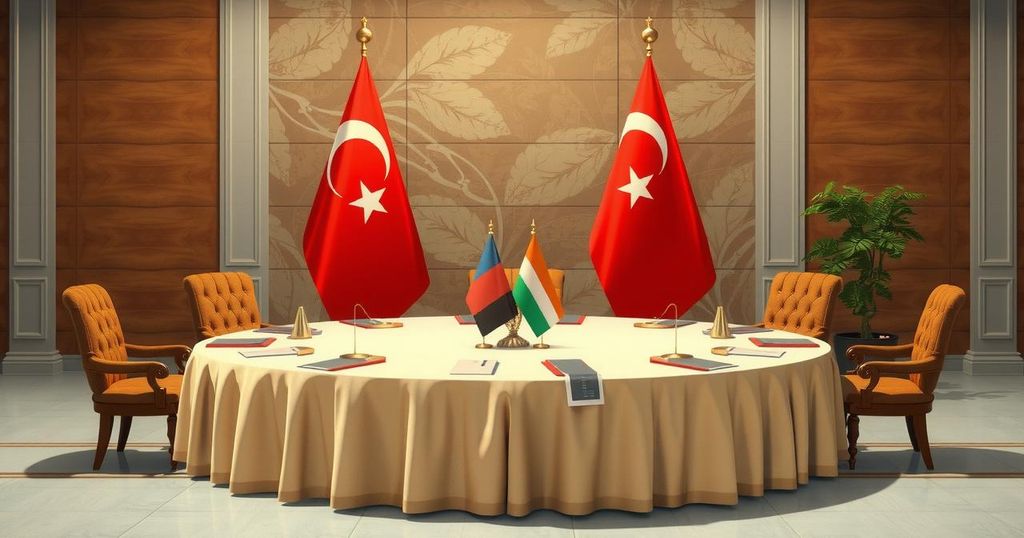Following the ousting of Bashar al-Assad, nations are rapidly engaging with Syria’s new interim leaders. The Islamist-led offensive on December 8 led to celebrations, while international diplomats emphasize the importance of justice and inclusion. Countries such as Qatar and Turkey are reopening diplomatic channels, indicating a significant policy shift, amidst ongoing humanitarian concerns and geopolitical complexities.
Governments around the world are intensifying their engagement with Syria’s interim leaders following the recent ouster of President Bashar al-Assad by Islamist-led insurgents. This dramatic shift occurred on December 8, 2024, leading to celebrations among Syrians who express newfound hope and freedom. Diplomats, including UN envoy Geir Pedersen, are advocating for the establishment of an inclusive administration focused on rebuilding the nation and ensuring justice. Amid these developments, countries like Qatar and Turkey are re-establishing diplomatic relations and offering support, reflecting a significant policy shift in the region. Meanwhile, the humanitarian situation remains critical, with calls for immediate assistance to address the devastating impact of a civil war that has persisted for over a decade. The new leadership faces enormous challenges, including the massive destruction of infrastructure and the need to maintain security for all citizens, particularly minorities. Further complications arise with diplomatic tensions and military activities from regional powers, underscoring the complexity of the situation that will require nuanced and sustained international engagement to foster stability in a post-Assad Syria.
The ongoing conflict in Syria has deeply impacted the country’s social and political fabric since 2011 when widespread protests against the Assad regime led to a brutal crackdown and subsequent civil war. The recent takeover by rebel forces marks a pivotal moment in Syria’s history, terminating over 13 years of tyrannical rulings. International reactions vary, as many nations reassess their foreign policies toward the new temporary leadership, which has been characterized by its extremist roots and connections to terrorist groups. Ensuring a peaceful transition and addressing humanitarian needs will be crucial for the new administration and the international community alike.
In summary, the abrupt removal of Bashar al-Assad has led to a major shift in Syrian governance and prompted increased international outreach to the new interim rulers. Countries such as Qatar and Turkey are re-engaging diplomatically, emphasizing support for rebuilding efforts and humanitarian assistance. Nonetheless, significant challenges remain, particularly the need for inclusive governance and the protection of minority rights, as well as addressing the complex geopolitical landscape that continues to evolve in the aftermath of Assad’s exit.
Original Source: jordantimes.com




